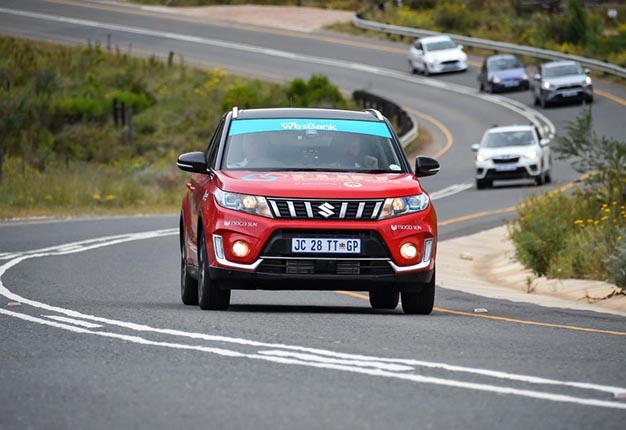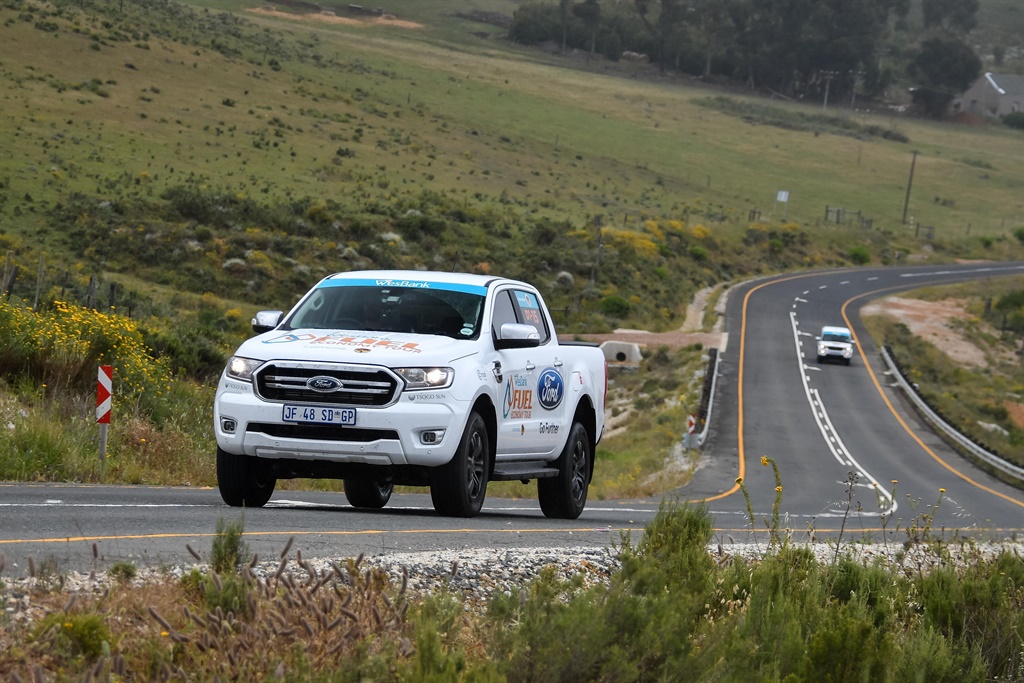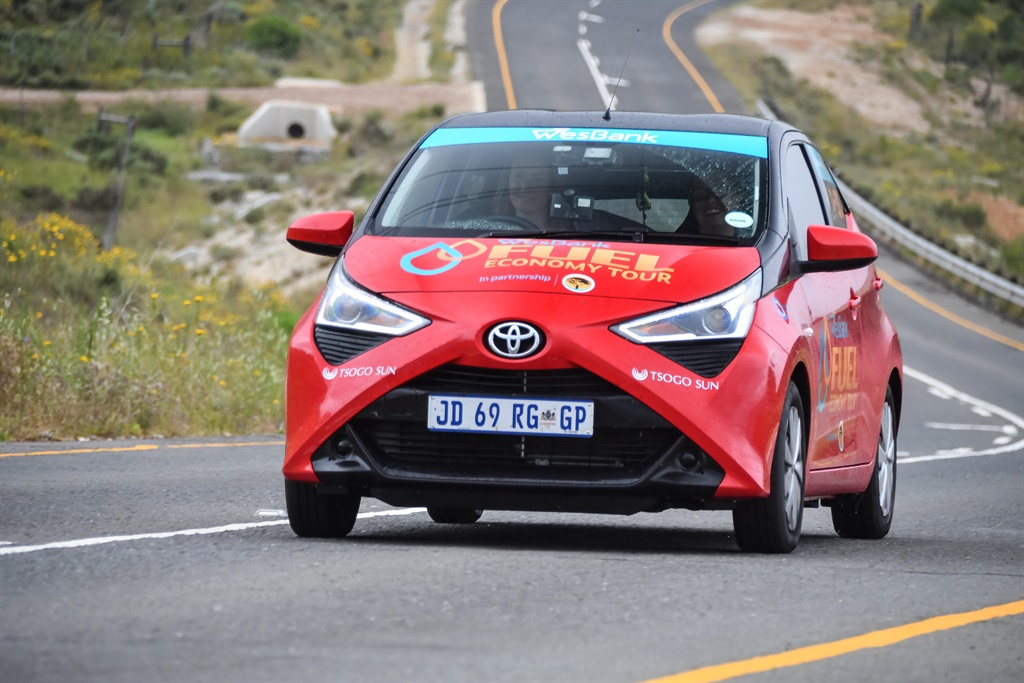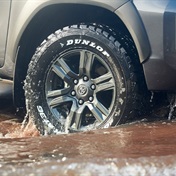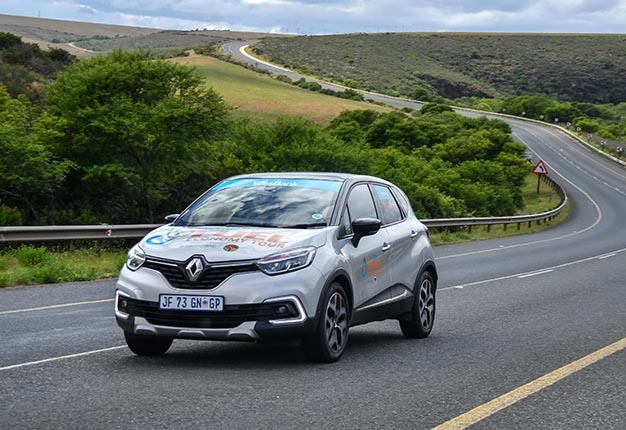
After five days and over 2 500km of economical driving across South Africa the titanic struggle for the title as the most fuel-efficient car brand and most frugal car model within each respective class in the recent inaugural WesBank SA Fuel Economy Tour in partnership with FNB went right down to the final fill in Cape Town.
The route started in Johannesburg at the impressive headquarters of FNB and WesBank and took the 40 competing vehicles from 8 different manufacturers on a variety of roads from Gauteng to the Mother City via Durban, East London, Port Elizabeth, and George.
SA's Fuel Economy Tour | Increasingly close competition highlights day 3
Showcasing the advanced state of engine technology available in vehicles today, over the course of the week the difference in efficiency margins in the respective vehicle classes were not measured in litres or centilitres, but in millilitres or less…
Slimmest of margins
The difference between winners and losers were decided by the slimmest of margins in the daily results and the tight contest between Renault and Suzuki for the title as the most fuel-efficient brand swung back and forth during the event, with Renault coming out top at the end of the first day and Suzuki topping the chart at the end of the second, third and fourth days.
Image: WesBank World of Fuel Economy
However, at the critical final refuel in Cape Town it was a trio of Renaults – the Captur, the Duster Techroad and the Kwid Climber – that bestowed the coveted title on the French brand by only 0.0275 l/100 km! The title was judged by averaging the fuel consumption of the best three performers in each of the brands that had cars in the field.
Renault’s average was 5.0695 l/100km, while the Suzuki trio of a Baleno, Ignis and Swift had a combined average of 5.0970 l/100 km. Third place went to Mahindra – the KUV 100 and two XUV 300’s – ahead of Nissan – with a Qashqai, Micra and Navara (the big double-cab unfortunately did not help the Japanese brand’s cause) – and Ford with a Fiesta, Kuga and Ranger (ditto the Navara comment).
The vehicle achieving the lowest consumption overall was the Renault Captur 1.5-litre turbodiesel crewed by motoring journalist Wynter Murdoch and experienced rally navigator Carolyn Swan with an average of 4.7319 l/100km.
Next best was a Toyota Aygo with a 1-litre normally aspirated petrol engine, crewed by motoring journalist Carri-Ann Jane and yoga instructor Roxanne Jones, taking part in their first competitive motoring competition.
The Aygo averaged 4.8328 l/100km and the pair also won the prize for the highest placed all-female crew. Third best on consumption was the Nissan Qashqai 1.5-litre turbodiesel crewed by Diete and Eckhard Engelbrecht at 4.8526 l/100km,
Bakkie battle
The battle of the bakkies was also at times too close to call…Competing in the class for turbodiesel double cabs with engines of less than 2 500cc it was the Ford Ranger 2-litre single-turbo model, driven by Colin Mileman and navigated by the experienced Henry Kohne eventually taking top honours with an overall average of 6.8179 l/100km.
Image: WesBank World of Fuel Economy
Its margin to the second-placed Mitsubishi Triton (6.8513 l/100km) was less than 0.5 l/100km, with a Nissan Navara (6.9692 l/100km) coming in third, beating a Toyota Hilux 2.4 (6.9782 l/100km) with a meagre 0.001 l/100km, while a Mahindra PikUp averaged 7.7867l/100km over the distance of 2 500km.
Class winners
Suzuki may not have collected the overall spoils but ended up with six class wins (with an Ignis, Vitara 1.6, Vitara 1.4, Baleno, Swift Sport and Ertiga), while Ford (Fiesta and Ranger), Hyundai (Sante Fe and Venue), Renault (Captur and Duster) and Toyota (Aygo and Hilux 2.8) all won two classes. The other class winners are Honda (HRV), Lexus (UX Hybrid) and Mahindra (KUV 100).
Image: WesBank World of Fuel Economy
Throughout the Economy Tour the competitors were monitored by the vehicle tracking and mobility solutions company Ctrack. Real-time information from Ctrack was available continuously to the event organisers and the system accurately measured the average speeds of the participants as well as how long they took to complete individual timed sections.
With the system it was possible to gauge if participants got lost or purposely deviated from the route, thereby providing the organisers with more control over proceedings and allowing them to make informed decisions as to what actions should be taken.
All cars were also fitted with a dashcam facing forward and another focused on the driver and the vehicle controls. The outward-facing cameras were used to monitor driving behaviour such as passing on solid lines, dangerous driving and the like, while the interior-focused unit was to check on unacceptable driver behaviour such as shifting into neutral and freewheeling.
Penalties
Penalties were imposed for late arrival at control checkpoints and for driving infringements at the rate of one litre of fuel for each penalty point, and yes, some competitors were severely penalised – depriving them of any chance to attain a good result.
Image: WesBank World of Fuel Economy
Seen in totality the first fuel economy event in nearly a decade was a great success. It was perhaps too long and drawn out, and yes, the participation of more manufacturers (such as Mazda, Peugeot/Citroën and Volkswagen and the premier brands Audi, BMW, Jaguar, Mercedes-Benz and Volvo) and hybrid vehicles will give it more credibility.
Still, the objectives have been met. As chief organiser Charl Wilken of Wilken Communications commented: "The objective of this event was to provide consumers with fuel consumption figures that are relevant to going on a road trip in South Africa using main roads, and I believe we have achieved that aim."




 Publications
Publications
 Partners
Partners




